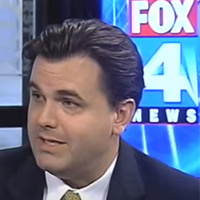 Deweyville RICO Act Lawyers, Texas
Deweyville RICO Act Lawyers, Texas
Sponsored Law Firm
-
 x
x

Click For More Info:
-
Law Office of Robert R. Jones III
2411 Emancipation Ave, Suite 202, Houston, TX 77004» view mapCriminal Defense Expert Representation for Reasonable Rates
If you need representation, call me 24/7.
800-883-8760
Not enough matches for Deweyville RICO Act lawyer.
Below are all Deweyville Criminal lawyers.
Sponsored Lawyers
1-10 of 35 matches
Accident & Injury, Criminal, Insurance, Litigation, Property Damage
As a second generation lawyer, Scott Renick believes strongly in protecting the rights of individuals and the right to trial by jury. Before founding the Renick Law Firm, PLLC, Scott served as a Texas prosecutor and worked at successful law firms focused on fighting for injured people in Texas. Scott focuses his practice on personal injury and insurance disputes. Scott handled hundreds of cases for Texas citizens fighting insurance companies to have their homes repaired the right way from damage caused by Hurricanes Rita and Ike. Scott has served as the President of the Board of Directors for The Garth House, which provides free counseling services to children who are victims of abuse. Scott is a proud member of the Texas Trial Lawyers Association. Scott is admitted to practice in Texas, including the Eastern District of Texas.
(more)DUI-DWI, Federal Appellate Practice, Domestic Violence & Neglect, , Criminal
Only two lawyers in Southeast Texas are both Board Certified in Criminal Law and Top 100 Trial Lawyers in Texas; Ryan Gertz is one of them. Focused on defending serious state and federal criminal charges, Ryan routinely tries complex cases and has met with great success.
(more)


 Robert Jones San Antonio, TX
Robert Jones San Antonio, TX AboutLaw Office of Robert R. Jones III
AboutLaw Office of Robert R. Jones III Practice AreasSpecializations
Practice AreasSpecializations



